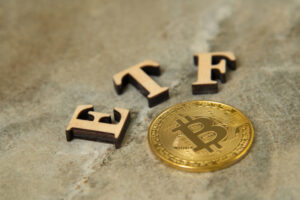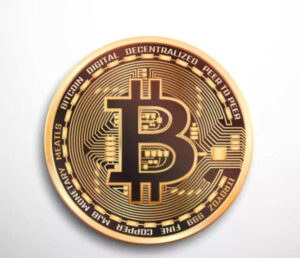The phrase “decentralized exchange” has been increasingly popular in the financial and cryptocurrency industries in recent years. Decentralized exchanges (DEXs) have emerged, upending the long-standing dominance of traditional centralized exchanges as the preferred trading venues for assets. This article seeks to demystify decentralized exchanges by illuminating their workings, advantages, and the promise they have for trading in the future.
Decentralized Exchanges (DEXs): An Overview
As the name implies, decentralized exchanges are systems that enable peer-to-peer trading of digital assets without relying on a central authority. DEXs leverage blockchain technology to enable direct asset trading between users, as opposed to centralized exchanges, which serve as middlemen between buyers and sellers.
Features and Mechanisms:
Smart contracts, which are self-executing contracts maintained on a blockchain, are used by DEXs. These agreements automatically uphold the terms of transactions, ensuring openness and obviating the need for mutual trust between the parties.
Peer-to-Peer Trading: DEXs make it possible for users to transact with one another directly, doing away with the requirement for a central organization to manage funds or monitor transactions. The risk of theft or hacking is decreased by this peer-to-peer model’s increased privacy and control over resources.
Liquidity and Order Books: DEXs employ liquidity pools or order books to match buyers and sellers. Liquidity pools offer a supply of assets for on-the-fly trading, while order books show the status of current buy and sell orders. By algorithmically determining asset prices based on supply and demand, cutting-edge mechanisms like automated market makers (AMMs) provide liquidity.
Decentralized Exchanges’ advantages include:
Security and privacy: By eliminating the single point of failure, DEXs greatly improve security. DEXs give consumers the ability to maintain sovereignty over their assets, reducing the danger of theft or hacking, in contrast to centralized exchanges that consolidate user funds in one place. DEXs frequently protect user privacy by doing away with the requirement for personal identification during transactions.
Trustlessness and Transparency: Decentralized exchanges reduce the need for trust in middlemen. Smart contracts are used to ensure that transactions are carried out in accordance with predefined criteria, making the process visible and impermeable.
Access and Inclusivity: By enabling trading for people who might not have access to conventional banking services, DEXs have the potential to improve financial inclusion. DEXs are available around-the-clock and let anybody with an internet connection participate, regardless of location or the need for middlemen.
Decentralized exchanges (DEXs) examples include:
Uniswap: Uniswap is one of the most well-known decentralized exchanges built on the Ethereum blockchain. It introduced the concept of automated market makers (AMMs) and utilizes liquidity pools to facilitate trading. Uniswap allows users to trade ERC-20 tokens directly from their wallets without the need for intermediaries.
SushiSwap: SushiSwap is another DEX based on the Ethereum blockchain that gained attention for its unique approach. It forked from Uniswap and introduced additional features such as yield farming and staking, incentivizing users to provide liquidity to the platform.
PancakeSwap: PancakeSwap is a decentralized exchange running on the Binance Smart Chain (BSC). It offers similar functionalities to Uniswap but operates with lower transaction fees compared to the Ethereum network. PancakeSwap has become a popular alternative for traders looking for lower-cost transactions.
Cryptocurrency exchanges vs. decentralized exchanges (DEXs):
The main difference between centralization and decentralization is how each one approaches power and management. Centralized exchanges function as middlemen that manage user funds and serve as the control center for trading. They mandate that users fund the exchange’s wallets with their assets before allowing trading on their platforms. DEXs, on the other hand, use blockchain technology and smart contracts to enable direct peer-to-peer trade without the use of middlemen. During the trading process, users maintain control over their money.
Trusted intermediates, such as centralized exchanges, manage user accounts, facilitate transactions, and offer order matching services. Users rely on the security precautions taken by the exchange and have faith that the platform will handle their valuables safely. DEXs, on the other hand, use smart contracts to try and reduce the requirement for trust. These self-executing agreements create a trustless trading environment by autonomously enforcing transaction rules and removing the need for a centralized authority.
Security and privacy: Since user funds are stored in centralized wallets, centralized exchanges are vulnerable to hackers and other security lapses. Users must have faith in the security controls and procedures of the exchange. DEXs, on the other hand, place a higher priority on security by letting users maintain ownership of their assets throughout the trading process. Users’ funds are kept in their individual wallets with DEXs, lowering the possibility of centralized vulnerabilities. DEXs frequently place a priority on privacy as well because users are not required to submit personal information when doing transactions.
Trading Pairs and Liquidity: Due to their larger user bases and market-making techniques, centralized exchanges frequently have more liquidity and offer a wide variety of trading pairs. They can offer quicker execution and deeper order books. DEXs, particularly those that use automated market makers (AMMs), may have liquidity restrictions, especially for less well-known or more recent coins. Improvements are being made to improve trading experiences on decentralized platforms, however liquidity is a problem that continuing development in DEXs intends to address.
Regulation and Compliance: Centralized exchanges frequently operate under regulatory frameworks and are required to abide by anti-money laundering (AML) and know-your-customer (KYC) laws. To comply with regulatory restrictions, they demand that users confirm their identities. Regulators may face difficulties overseeing and complying with DEXs because they are decentralized and sometimes run on permissionless blockchains. To balance security and compliance, regulatory frameworks are changing to take into account the special features of DEXs.
Problems and Upcoming Changes:
Decentralized exchanges provide many benefits, yet there are still problems. Due to the existing limits of blockchain technology, scalability and user experience may be constrained. But these problems are currently being actively addressed through continuing research and development.
Future decentralized exchange innovations can be anticipated. In order to improve scalability and transaction speed while also enabling seamless cross-chain trading, layer 2 solutions and interoperability protocols are used. To address the special characteristics of DEXs, regulatory frameworks are changing and balancing security and compliance.
Conclusion:
Decentralized exchanges (DEXs) mark a substantial paradigm shift in the trade and financial industries. DEXs provide better security, privacy, and asset control by utilizing blockchain technology and smart contracts. They do away with the need for middlemen and offer a distrustless setting for peer-to-peer commerce. By providing access to trading for people who would not have access to regular banking services or cryptocurrency exchanges, DEXs have the potential to improve financial inclusion. While problems like scalability and liquidity continue, continuing research and innovation in the industry are actively tackling these problems. We should expect greater developments and adoption in the future as regulatory regimes adapt to DEXs. The emergence of decentralized exchanges is a watershed moment in the development of trading, opening up new avenues and empowering people in the digital economy.






